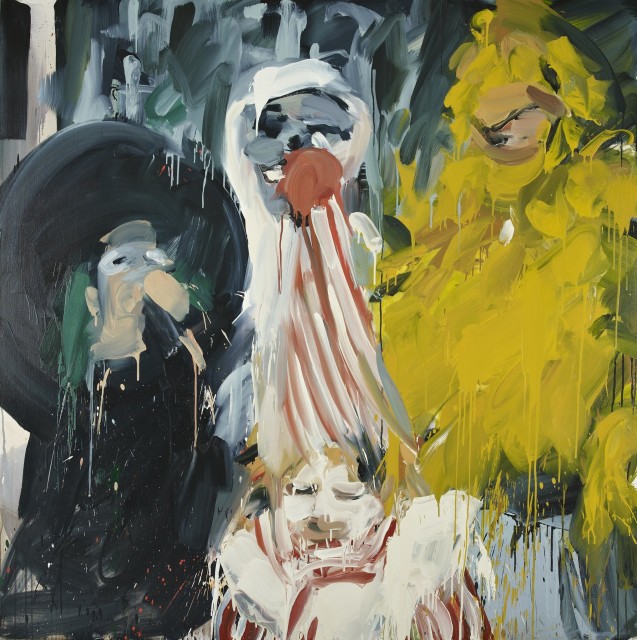The source of Laura Lancaster's paintings, drawings and installations are found photographs, slides and cine films of strangers, found in flea markets and junk shops. The translation of these lost images into paint becomes an investigation into artistic control, a devotional act on the artist's part. With some installation works taking months to complete, the resulting anonymity imposed onto the subject provides a distancing mechanism. Lancaster often employs minimalist tactics, which offset the sentimentality of the source.
Lancaster's process-orientated practice forms an ongoing dialogue between the languages of painting and photography, focusing on the manipulation of the tension between the visceral qualities of the paint and the image it depicts. Lancaster embraces the ambiguity that results from this transformation process, allowing the everyday and mundane to take on odd, surreal qualities, becoming poignant melancholic icons. Once sentimental imagery opens up, and when painted takes on a universal, familiar quality, and allows the artist to reference numerous styles and genres of painting as well as touch the history of painting as a medium.
The figurative works evoke strong feelings of nostalgia and wistfulness, despite the anonymity of the subjects. Putting themselves forward as seemingly typical "snapshots" of family life, rather than being personal to the artist and exclusive, the intentional blurring of the works makes them impossible not to relate to; they sit warmly in the collection as little monuments to interpersonal relationships.
Lancaster was born in 1979 in Hartlepool, UK, and graduated from Fine Art at Northumbria University in 2001.
Laura Lancaster is represented by Workplace Gallery, UK, www.workplacegallery.co.uk
